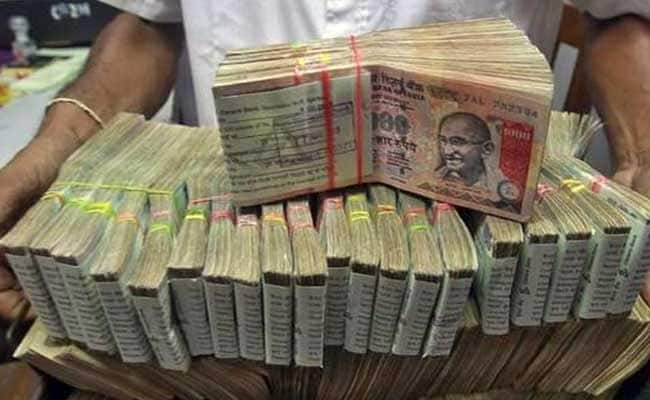
The cabinet has cleared new amendments to existing laws to charge a minimum 50 per cent tax on unexplained bank deposits made using banned 500 and 1,000 rupee notes up to December 30. It will be introduced in parliament next week.
Under the scheme, cash deposits in old notes above a threshold and that is declared to Income Tax authorities, will attract a 50 per cent tax. Half of the remaining deposits, or 25 per cent of the original deposit, will not be allowed to be withdrawn for four years.
However, a higher 90 per cent tax and penalty will be imposed if assessees do not declare the unaccounted cash voluntarily and it is discovered by income tax authorities.
If cash seized in raids can be explained, a 30 per cent fine will be imposed. If it cannot be explained it will attract a 60 per cent fine.
The government, said sources, has also proposed a new bond scheme called the Pradhan Mantri Garib Kalyan Yojana, which would allow deposits in old currency with a tax penalty of 50 per cent and will provide immunity from income tax scrutiny.
After Prime Minister Narendra Modi announced the notes ban aimed at eliminating corruption and black or undeclared money, people were given a 50-day window beginning November 10 to deposit 500 and 1,000 rupee notes, with an option for a one-time exchange of 4,000 rupees.
The exchange, which was later limited to a maximum of Rs 2,000 per person, has been withdrawn this week and all old notes must now be deposited in bank accounts.
There has reportedly been a surge in bank deposits, particularly in zero-balance Jan Dhan accounts that swelled by over Rs 21,000 crore in just two weeks, raising suspicion that these accounts may have been used to launder black money.
The cabinet approved amending the Income Tax Act to plug these loopholes. The government, said sources, felt that the purpose of the demonetisation to uproot corruption would be defeated if black money made its way back into the system through benami deposits or proxy deposits.
While the government’s move has been praised for its intent, opposition parties have united to attack the notes ban for its planning and implementation. Opposition leaders have argued that the current scheme will not curb black money.
PM Modi yesterday hit out at critics saying, “Some people criticising the demonetisation don't have a problem with the government's preparedness; their problem is that they didn't get time to prepare.”

